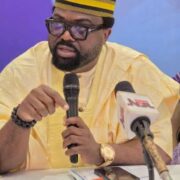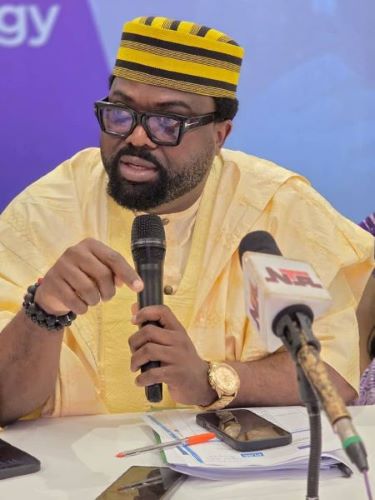Chairman of the House of Representatives Committee on Media and Public Affairs, Hon. Akin Rotimi, has cautioned against widespread misconceptions surrounding the proposed Special Seats Bill, clarifying that the legislation seeks to create additional seats for women in Nigeria’s legislature rather than take away existing ones.
Rotimi, who spoke at the Stakeholders Consultation and Communication Strategy Meeting on the passage of the Special Seats Bill convened by the Policy and Legal Advocacy Centre (PLAC) with support from the European Union (EU) in Abuja, stressed that the Bill is aimed at addressing the long-standing gender imbalance in political representation.
“The Special Seats Bill is not about taking away anyone’s seat. It’s about creating additional seats to correct historic underrepresentation. The confusion around whether these are ‘reserved’ or ‘added’ seats must be clarified. Precision in language is critical.” he stressed.
The lawmaker urged the media and advocacy groups to adopt consistent, factual messaging that properly explains the intent of the Bill, warning that miscommunication could derail the cause.
“When people think we are reallocating existing seats, it creates unnecessary resistance. This is a legislative process that depends on persuasion, evidence, and clarity, not public misconceptions,” he warned.
Rotimi also addressed public concerns about the potential cost of governance that could arise from creating additional legislative seats, insisting that Nigeria’s current representation ratio is among the lowest in the world.
“Nigeria has one legislator for every 488,000 citizens,” he said. “Adding more lawmakers will strengthen representation, not inflate costs. Compared to countries like Kenya, Canada, and France, our representation gap is enormous.”
He further called for measured and constructive advocacy, warning against divisive rhetoric that frames the Bill as a gender battle. “The narrative must not be about men versus women. Lawmakers are allies, not adversaries,” Rotimi said. “We need respectful, strategic engagement that builds understanding and support.”
The legislator also highlighted the importance of mentorship and political party accountability in deepening women’s participation. He noted that beyond special seats, parties must actively support women candidates contesting regular elective positions.
“We must ensure that mentorship and leadership development remain part of this advocacy,” he noted. “Political parties and leaders must be held responsible for creating opportunities for women to win regular seats.”
Rotimi urged the media to draw lessons from African countries such as Rwanda, Tanzania, Uganda, and Kenya, which have successfully implemented similar measures to promote gender-inclusive governance. “Women’s representation is not a foreign idea,” he said. “It is a deeply Nigerian aspiration — a pursuit of fairness, inclusion, and effective democracy.”
In his remarks, Executive Director of PLAC, Mr. Clement Nwankwo, lauded legislators and civil society groups for sustained engagement and called for continued dialogue to dispel misinformation. “We must continue to push for understanding, that these special seats are corrective, not compensatory measures,” Nwankwo said.
Other speakers, including Hajia Aishatu Ibrahim, National President of the Nigerian Association of Women Journalists (NAWOJ), and John Angese of the Nigerian Union of Journalists (NUJ), emphasized the need for a unified communication strategy and media partnership to strengthen advocacy efforts.
They noted that inclusive representation remains critical to Nigeria’s democratic growth and urged sustained collaboration among civil society, the media, and policymakers to ensure the Special Seats Bill succeeds.


